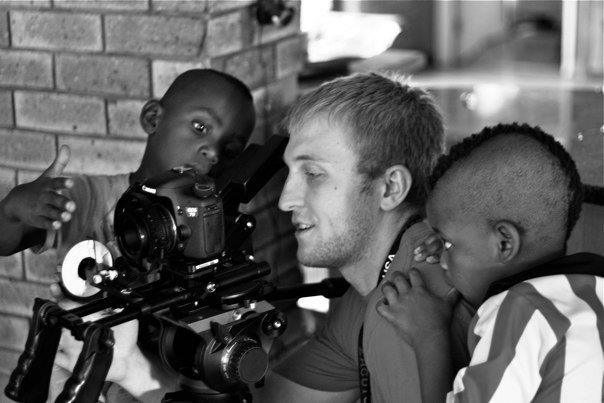
In Their Own Words: Writer/Producer/Director Sean Meehan of “Total Performance”
Greetings readers and welcome back to another installment of “In Their Own Words” here at OneFilmFan.com! Thanks to a newly made connection with another involved within the independent film world, I am honored to present this newest interview with a multi-talented filmmaker heralding from the State of New York, Sean Meehan. Having recently screened multiple short films from him, including “Waste of Space”, “Mallas, MA”, and a more recent effort we’ll discuss here, “Total Performance”, it continues to be evident the state of indie film in the Northeast U.S. is alive and well. Mr. Meehan was kind enough to take time out of a busy schedule in Boston (and now, another recent move! See below!) to do this interview for OneFilmFan, and so with no more fuss, here is my interview with this prolific filmmaker.
One Film Fan: Ok, first off, tell us a little about Sean Meehan! Who is this guy, what’s his background story, and how did it, in a general sense, lead to the world of film?
Sean Meehan: I really wish my “origin story” was an interesting one! I grew up in Westchester County, New York, which is about an hour or so north of Manhattan. I messed around a bit behind the camera in high school, but it really only consisted of a few projects for my Spanish class. That said, some friends and I did make the best “MTV Cribs” parody that nobody will ever see. Aside from that, I can remember always enjoying movies, but it had never really struck me that making movies was something to aspire to. For me, that didn’t happen until in college.
O.F.F.: How did you further learn the industry (ie: mentors, influences, and schooling)?
S.M.: I went to Boston College, and that’s where I really figured out what I wanted to do. I will say that, once I immersed myself in cinema, I decided pretty quickly that I wanted to be a filmmaker. Luckily, both of my parents were always incredibly supportive, so I got the green light pretty quickly. At the time (this would be between 2007 and 2011), Boston College’s film program was more focused on film studies than production. That’s not to say that the courses that I took weren’t incredibly formative, but the program as a whole was much more focused on film criticism and theory, rather than putting a camera in the students’ hands.
I had a few very important professors in my time at BC, including Gautam Chopra (introductory and advanced filmmaking), John Hoover (cinematography) and Drew Yanno (screenwriting). Given that the production side of the curriculum was comparatively small, we often had to make a lot with very little, and Gautam, John and Drew really taught us how to transcend or oftentimes embrace limitations.
When I eventually struck out on my own as a freelance shooter/editor, I was very lucky that the Boston film community is a warm and welcoming bunch. I met a lot of exceptionally talented folks like Rick Macomber, Benjamin Eckstein, Ben Consoli and of course, Chris Loughran, who has become my go-to cinematographer on almost everything I’ve ever directed professionally. He’s easily my closest collaborator behind the camera, and I learn from the guy constantly.
O.F.F.: What was your very first official gig in the film realm? How did that initial experience prepare you for future projects?
S.M.: It’s hard to figure out what exactly the first gig was, but the first memorable one was an ultra low-budget horror feature that I did some second unit cinematography for. I was fresh out of college, and I just remember being so thrilled to be paid to shoot something for a feature. I try to bring that sense of “isn’t this so cool?” to everything that I do, because I still firmly believe it. There’s no denying that filmmaking, on any level, can be a stressful and arduous process. But, it’s so important to keep in mind that, at the end of the day, we’re all coming together to make something. It can be harder to keep that energy going on a drab corporate interview, but I really do try to find something awesome in every project.
O.F.F.: As with many of the indie film residents I’ve interviewed over time, you are ultimately a man of many “hats”! Writer, producer, director, editor, and even some visual effects work now. That’s a LOT to take on, wouldn’t you say?
S.M.: It definitely keeps me busy! I’m still kind of young, but I can say pretty confidently that, as a director, it’s important to be as knowledgeable as possible. At the very least, you should be familiar with as many fields as possible. I love writing and directing, but when it comes to things like sound, visual effects, editing and cinematography, I really want to know what each of these positions need in order to do their best work. I think you get the best out of people when you can show that you understand what they need and, more importantly, you care about getting them what they need whenever possible.
On a purely practical level, being able to cut, do visual effects, color correction or anything else outside of the immediate purview of the director means that you can make things for cheaper. I happen to enjoy editing and visual effects (to a certain extent), so I don’t mind taking on those jobs. I’m looking forward to upcoming projects where that won’t necessarily be my duty, though. I love working with other artists, and I love watching people re-interpret the movie and put their own stamps on it.
O.F.F.: The short film arena seems to be your primary playground currently, and has been, what I would call, steady between 2010 to present. How has the ongoing work in this medium helped you evolve as a filmmaker?
S.M.: I think short films give you a lot of freedom to play, and to figure out your own aesthetic. I think Steven Soderbergh has talked about how, when you start out playing an instrument, you just learn to play your favorite songs. You get to a point where you can play your favorite songs forwards and backwards perfectly, but then some people graduate into making their own music, and you’re no longer mimicking: you’re doing your own thing. He talks about the same thing for filmmakers, and I think that applies to shorts especially.
You get to make something compact that’s maybe just about moving the camera like Spielberg, or trying to write like the Edgar Wright and Simon Pegg. I’ve definitely learned over time what areas are my strengths, and other areas that I struggle with. I think making these shorts has allowed me to start to develop my own aesthetic, and I’m finding myself talking less and less about making something that’s “just like” something I’ve seen before.
O.F.F.: Through the work you’ve done, you created your company, Cross River Pictures. Tell us a little about what brought that about and the work you’ve done through it.
S.M.: So, Cross River Pictures started kind of on a whim. I had made my senior thesis film, and designed the opening shot to be long, with credits appearing over it. Just in the interest of pacing, I thought I needed a production company name to appear as the movie started. I grew up in Cross River, New York, and (apparently) wasn’t feeling super creative in the moment, so I figured I would just name a production company after my hometown. The name sort of stuck, and when it came time to go full-time freelance, I just stuck with it.
I run all of my freelance work through Cross River Pictures, so whether you hire me to direct, shoot, edit or do graphics for a project, you’re hiring Cross River Pictures. I’m really lucky that I’ve had a lot of great clients, specifically a lot of mobile app companies. My DP (Chris Loughran) likes to joke about the number of times we’ve filmed an iPhone screen over the years.
O.F.F.: So, onto your recently completed short film, “Total Performance”, which I believe is heading out soon on the Festival circuit, if not already on it, as well as online. What was the catalyst in creating and writing this story?
S.M.: I have a lot of friends that work at a startup of some kind, and I always find it fascinating how our culture, especially now, is always looking for a niche problem to solve so that they can turn that solution into a business. I thought it might be interesting to stretch that idea, and try to find a “problem” whose solution would be a bit more complicated to solve.
I think we’ve all had a moment in our lives where we’ve been afraid to have a particular conversation. Asking for a raise, breaking up with someone, or even just confronting a friend – I think we’ve all “rehearsed” a tricky scenario with ourselves before going through with it. I thought it might be fun if there was a company that gave people another person to rehearse with.
O.F.F.: Give the readers who may not have yet read my review of the film or watched it yet a spoiler-free synopsis.
S.M.: “Total Performance” is basically a movie that assumes that a company exists which employs actors to play opposite real people in a “rehearsal” of a difficult conversation. The movie centers on an actress named Cori who works for this company, and we see how this line of work might affect her emotionally, but also how she might be perfect for this job.
O.F.F.: The film, for me, addresses some pretty potent and very human themes about dealing with emotional conflicts in the context of having to talk them out with someone, much less being a person who “acts” that out for the sake of others’ prepping for the confrontation. How did this whole concept build as you wrote and then filmed this project?
S.M.: Once I had the initial idea, I started by trying to come up with an actual business plan for this company. I didn’t go into crazy detail, but I really wanted to set up how this company worked, how they broke each client down, and exactly how far they would let their employees go. Once I built that out, I started poking holes in this imaginary business, which was exciting, because I knew I wanted to highlight those issues at certain points in the movie.
From there, I started developing the character of Cori, and really tried to imagine what kind of person would be particularly skilled at this line of work. It wasn’t just that the character had to be a good actor. She also had to have a certain amount of emotional distance to be able to shake it off after each appointment. Relatively early on, I got together some of my actor friends for an informal reading of the script. This part of the process was incredibly helpful, and it’s something that I plan to do on all future projects. Not only does it let you hear the dialog for the first time, but it helps with pacing, story beats and even character traits as you go about rewriting.
The biggest evolution came once we started casting the movie, though. The actors brought so much to each role, and we immediately worked to give each of the characters a much more honest, human portrayal. I love that part of the process – I really only consider the script to ready once I’ve given the actors some time to digest and build upon what’s on the page.
O.F.F.: You took on all of those “hats” mentioned earlier for the sake of this effort, as you had done on previous projects prior. Must be EASY for you now, right?
S.M.: I wish it was easy! The projects continue to grow in their complexity, so it’s always a challenge. I knew that I always wanted to edit the movie (it’s the final rewrite), but I hired a sound mixer, colorist and composer this time around, because I really needed someone with far more skill than me to tackle such important parts of the process. It was a real treat, especially because all three of these artists (Pete Nenortas, Rob Bessette, and Cesar Suarez) brought their own interpretations to the movie, and made it better than I ever could have on my own. I’m really honored to work with such talented folks.
O.F.F.: How was it working with the wonderful talent in this film, including Tory Berner, Steven Conroy, Caitlin Berger, Anthony Rainville, Timothy J. Cox, and the others? Easy to direct them?
S.M.: Remember that thing I was saying about being honored to work with such talented folks? Well … that. In all seriousness: every single actor in this film was an absolute pleasure to work with. I’m a firm believer that my job as a director is to keep an eye on the tone at every step. Directing is 90% casting anyway, and since our cast was so incredible, any work that I had to do as a director was relatively minor tonal adjustments.
O.F.F.: Ok, spill—any funny anecdotes to share from the set?
S.M.: Oh boy – there are definitely a few, though they’re mostly inside jokes. One story in particular comes to mind that, though it’s more interesting than funny, is very unique to this movie. There’s a sequence towards the middle of the film where Cori (Tory Berner) is working with a new client, Walter (Timothy J. Cox). We jump forward about an hour, and Walter is in the middle of rehearsing the firing of his best friend. On the first take of Tim’s medium close-up, he delivers this heartbreaking, profoundly honest performance, especially for such a short scene. A thought occurred to me towards the end of the take, though. I was about to give the strangest note I’d ever given an actor.
I called cut, approached Tim and told him “that take was great, but I don’t think your character is as good of an actor as you are.” The best part of the whole exchange is Tim’s response. He considers it for a second, then just nods and goes “You’re right. Got it.” His next take was this fantastic mixture of real trepidation and just the slightest twinge of awkwardness. His character is supposed to be in this new environment, pretending to fire a woman he’s never met before, who is supposed to be playing his best friend. It’s all kinds of weird, but Tim is such a nuanced performer that he made it feel real. I’ve worked with Tim on almost everything I’ve ever made, and one of the many reasons why is his ability to internalize even the strangest note and turn it into something playable and real. Every time I write something, I can’t help but find a place for him in the story. He’s just too good.
O.F.F.: What other projects are currently on the horizon for you and Cross River Pictures and/or would you LIKE to be involved in?
S.M.: I have a few projects that are in the “everybody wants to make it, we just need to figure out how” stage at the moment, and I have a few more projects that are in the “hey, have you finished that script yet?” stage. I probably shouldn’t talk about any of them in detail just yet. I can say that there’s at least one web series that I’m hoping to direct soon, as well as a few other series, shorts and a feature that I’m slowly working on when I have time.
In terms of what I’d LIKE to be involved in? I’m really looking to do a few music videos. It’s been a little while since I’ve done one, so hopefully some bands will see our weird little movie and say “hey, maybe he’d like to make a weird little music video for us!”
O.F.F.: While striving to keep working consistently and growing your company brand and client base, how would you describe the current state of indie filmmaking in the Boston area? I’ve had a chance to connect with several other folks in that vicinity as well.
S.M.: The absolute best thing about Boston is the community that exists amongst creatives. I actually moved to Brooklyn in September, and what I’ll miss most about the work in Boston is the people who do the work up there. It blew me away how friendly, helpful, and welcoming everyone was to me when I started. I didn’t get a heavy competitive vibe from anyone, and a lot of us worked on each others’ projects in various crew capacities. My cinematographer likes to joke about this, because I hire him to shoot for me when I get a call as a director, but then he turns around and hires me as a second camera for him on a lot of his projects. He’s asked me multiple times “so, who is whose boss today?”
O.F.F.: Adding to that line of questioning, my experiences with those involved with the independent film world has been amazing. Incredibly hardworking, dedicated folks who truly love film and being a part of characters and stories that illustrate this passion in ways a lot of mainstream efforts don’t always do. How important is it as an indie filmmaker to see the genre get more recognition and support from both the movie industry overall and movie goers in general?
S.M.: I think it’s a pretty amazing time to be producing things independently. Take this interview, for example. Even ten years ago, we never would have had this kind of platform to release a short film and get it out to people in a meaningful way. The route would have been festivals, and if you weren’t selected for any of them, there wasn’t much else that you could do in terms of getting people to see it. Now, we can put “Total Performance” up on the Internet, and send it around to the world in seconds. The challenge then becomes “how do we get people to watch it?” You mentioned the word “passion” with respect to independent filmmakers, and I think that can be the key to getting your movie seen. Ideally, you make your movie with as much passion as humanly possible.
When the movie’s done, you then need to be passionate about sharing your work, and you have to hope that that passion will bleed over to the audience when they watch it. You can’t expect that people will watch your movie just because they can. If you’re lucky, people can respond to your work in a major way, and by sharing it across the Internet your art can be seen by an enormous audience. If you look at the work of Freddie Wong and the entire team over at Rocket Jump, you’ll see a lot of that passion. They started by making comedic action shorts because they loved doing it, and over time people found them, appreciated their skill and sensibility, and stuck with them. Now they’re working with Hulu and Lionsgate, and I think the coolest part about that story is when you watch something like “Video Game High School”, it still feels like it came from them. As an audience member, that’s what you hope for. You want to find an artist that you respond to, and you hope that, as you watch them grow, it still feels like you’re watching something specific and unique.
As a creator, the dream for me is that an audience will find the work and want to stick with us, no matter what we make. The landscape has shifted in such a way that I think it’s entirely possible, you just need to be committed to making things. If you keep working at it, and you’re making something good, people will (hopefully) find you.
O.F.F.: Always end with this one—a nice easy one to answer! What is YOUR favorite film of all time? Why?
S.M.: This one’s tough. I’ll say that today, my favorite film of all time is “Barton Fink” by the Coen brothers. I find that the Coens have an absolute mastery of world-building, and many of their films are some of my all-time favorites. The world of “Barton Fink” just happens to be my favorite world to visit, which I know is kind of weird given the subject matter of the film. It’s a hilarious satire, with an intentionally unlikable protagonist, and it’s all so elegantly constructed.
It also makes a pretty fascinating double feature with “Inside Llewyn Davis”, which is another favorite of mine. Both movies have a pretty cynical reading of the “artist” as a protagonist, but the Coens imbue both movies with just enough empathy that you can feel how the directors relate to their characters, both positively and negatively.
And there you have it, folks! A wonderfully detailed, insightful journey into this young indie filmmaker’s newly growing career that definitely would not seem to have any indication of slowing down. And this is awesome news, because truly, the independent film industry needs more and more people like Sean to keep showing the world the quality level of work being made within its ranks, and then moviegoers and film fans spreading the word so these passionate artists have their chance to shine. In the meantime, want to keep up with Sean, his films, and Cross River Pictures? Try these sources:
“Follow” Sean at his Twitter account: here
Connect with Sean (at his discretion) via Facebook: here
Check out Cross River Pictures’ website: here
“Like” Cross River Pictures’ Facebook Page: here
AND….how about watching the film, “Total Performance” itself! HERE
As I always desire to do after each interview post, I extend a heartfelt “Thank You!!” to Sean Meehan again for doing this interview with OneFilmFan.com and wish him and Cross River Pictures all the best. We will look forward to the future films with anticipation. Readers, thank YOU for reading, please spread the word, and until next time, God bless!
Photo Credits: On-Set, non-Watermarked pics courtesy of Jordan Jennings!

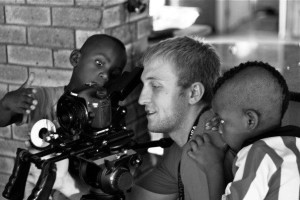
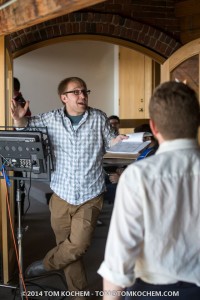
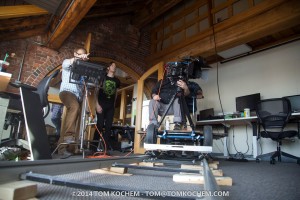
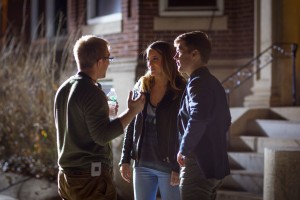
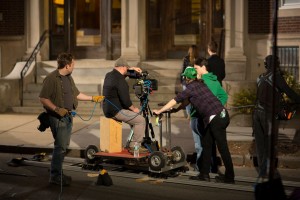

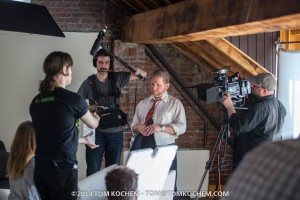
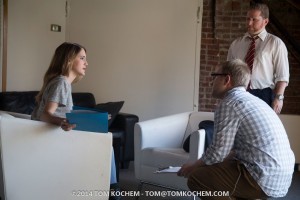
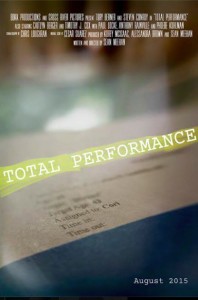
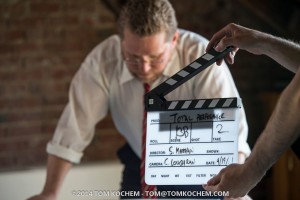

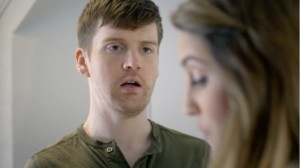
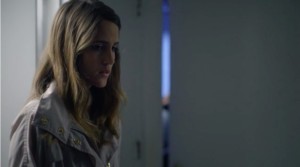
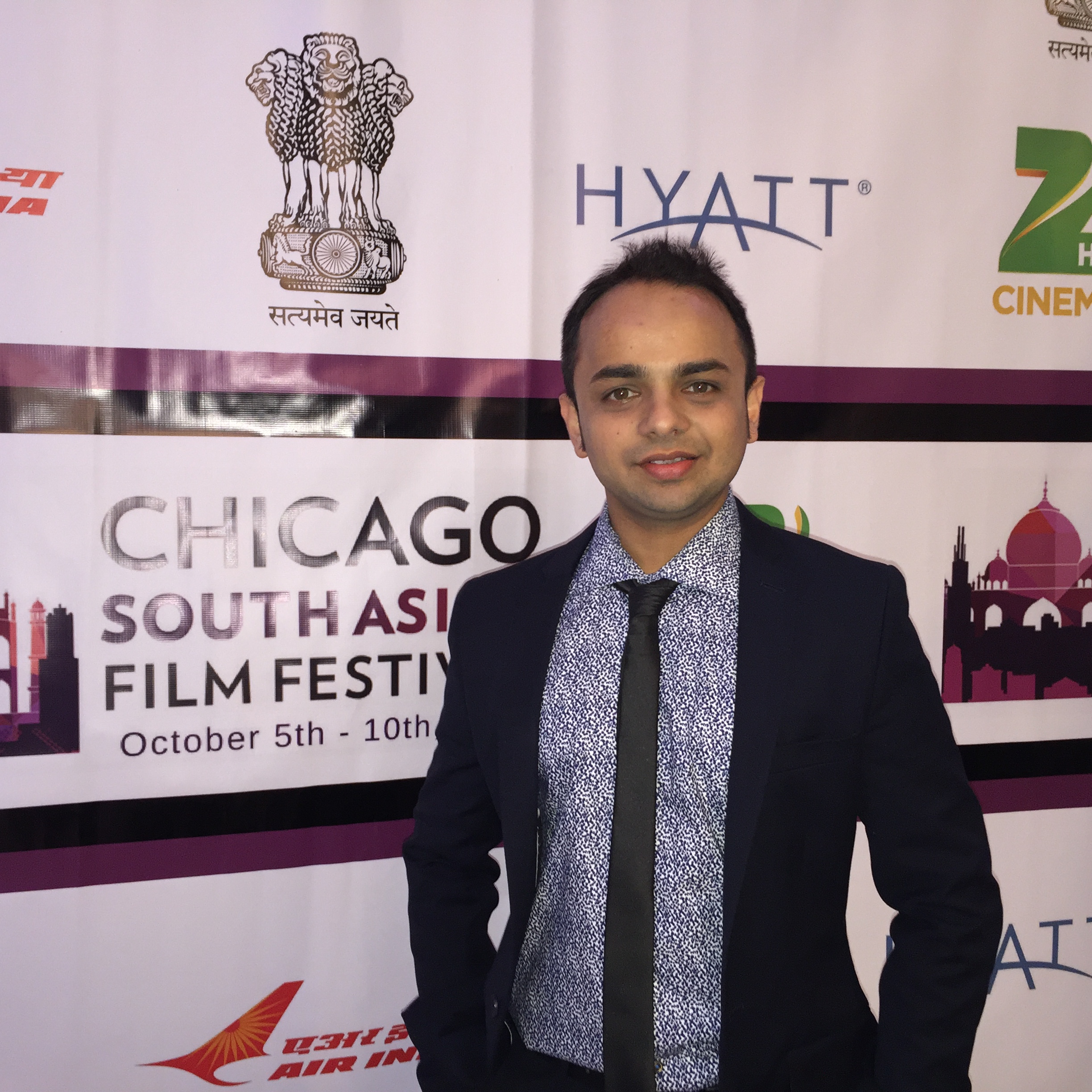
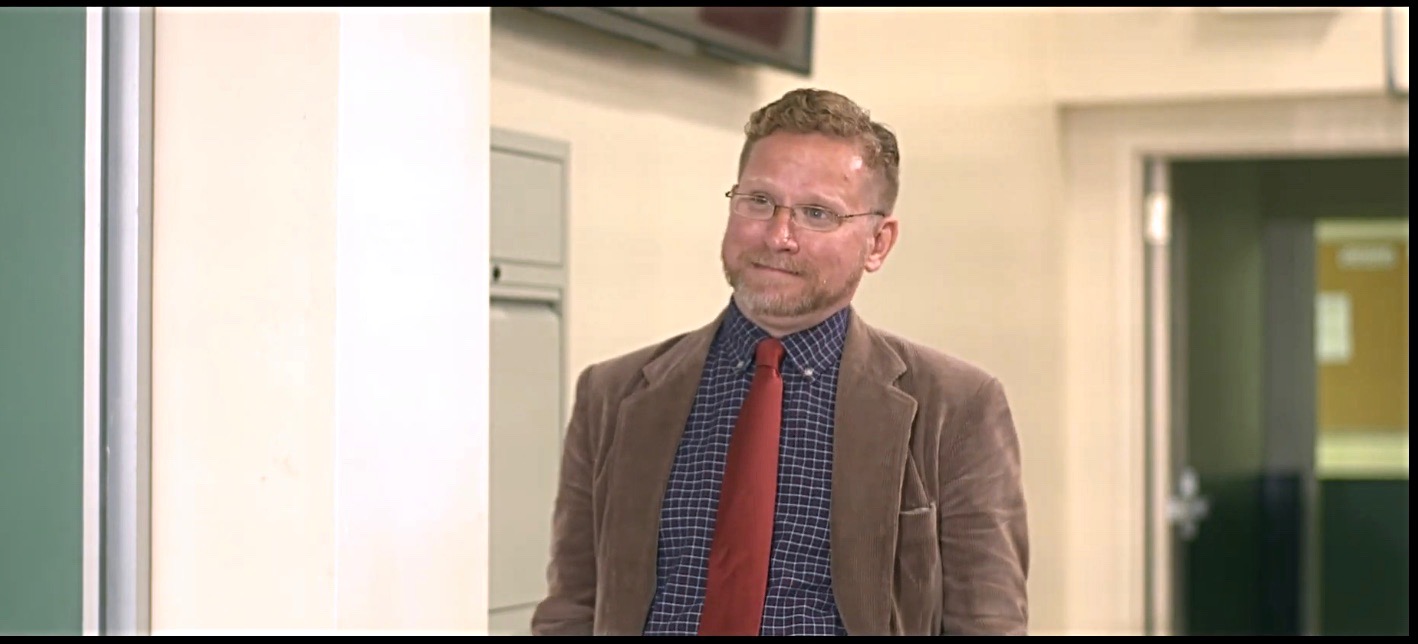
Permalink
Permalink